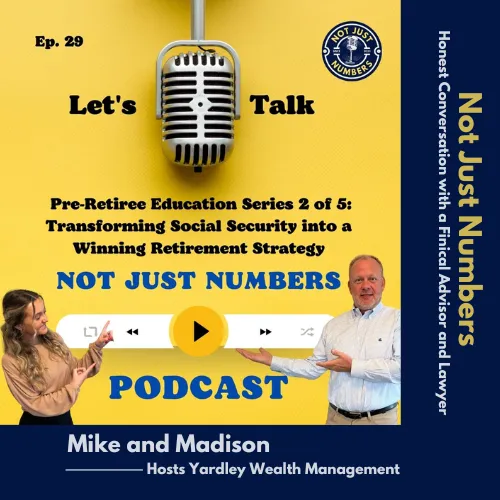Episode 29: Pre-Retiree Education Series 2 of 5: Transforming Social Security into a Winning Retirement Strategy
Hosts: Madison Demora and Mike Garry
Episode Overview
In this second installment of the Pre-Retiree Education Series, Mike Garry and Madison Demora explore the intricacies of Social Security benefits and how to transform them into an effective retirement strategy. The episode covers essential aspects of Social Security, from basic eligibility requirements to advanced claiming strategies for both couples and single individuals. Mike provides expert insights on timing benefits, spousal considerations, and how to integrate Social Security into a comprehensive retirement plan.
Listen to Our Podcast On:
Timestamps
- 00:08 – 00:50 – Introduction to episode topic: Pre-Retiree Education – Transforming Social Security into a Winning Retirement Strategy
- 00:51 – 02:46 – Eligibility Requirements and Advantages & Disadvantages of Collecting Early
- 02:47 – 04:29 – Spousal and Survivor Benefits & Full Retirement Age
- 04:30 – 05:52 – Working While Receiving Social Security & Advantages of Spousal Benefits for Couples
- 05:53 – 06:37 – Strategies for Single Individuals to Optimize Social Security
- 06:38 – 07:20 – Maximizing Social Security Benefits for Survivors & Role of Financial Planning
Follow Us on Social Media
Stay updated with the latest episodes and news by following us on social media:



